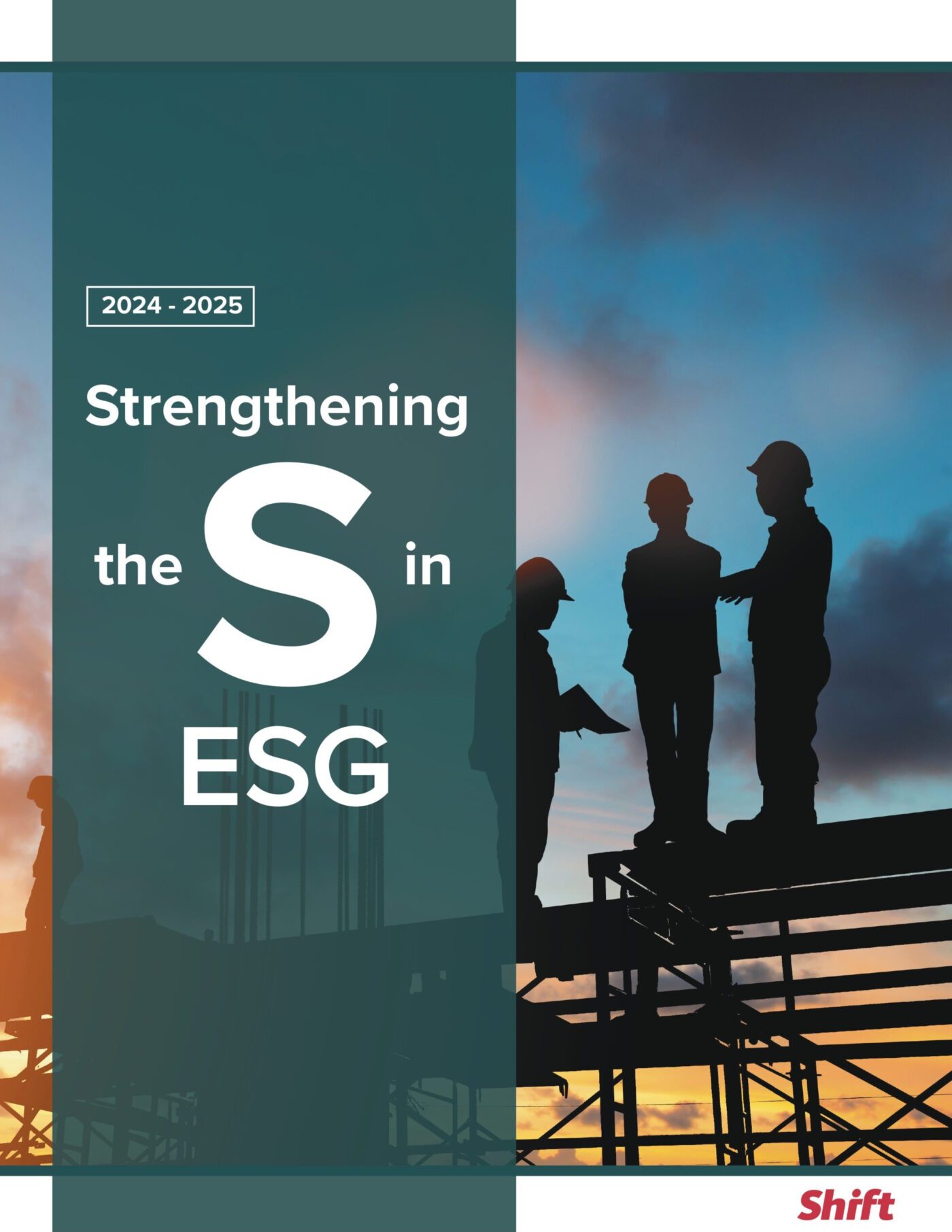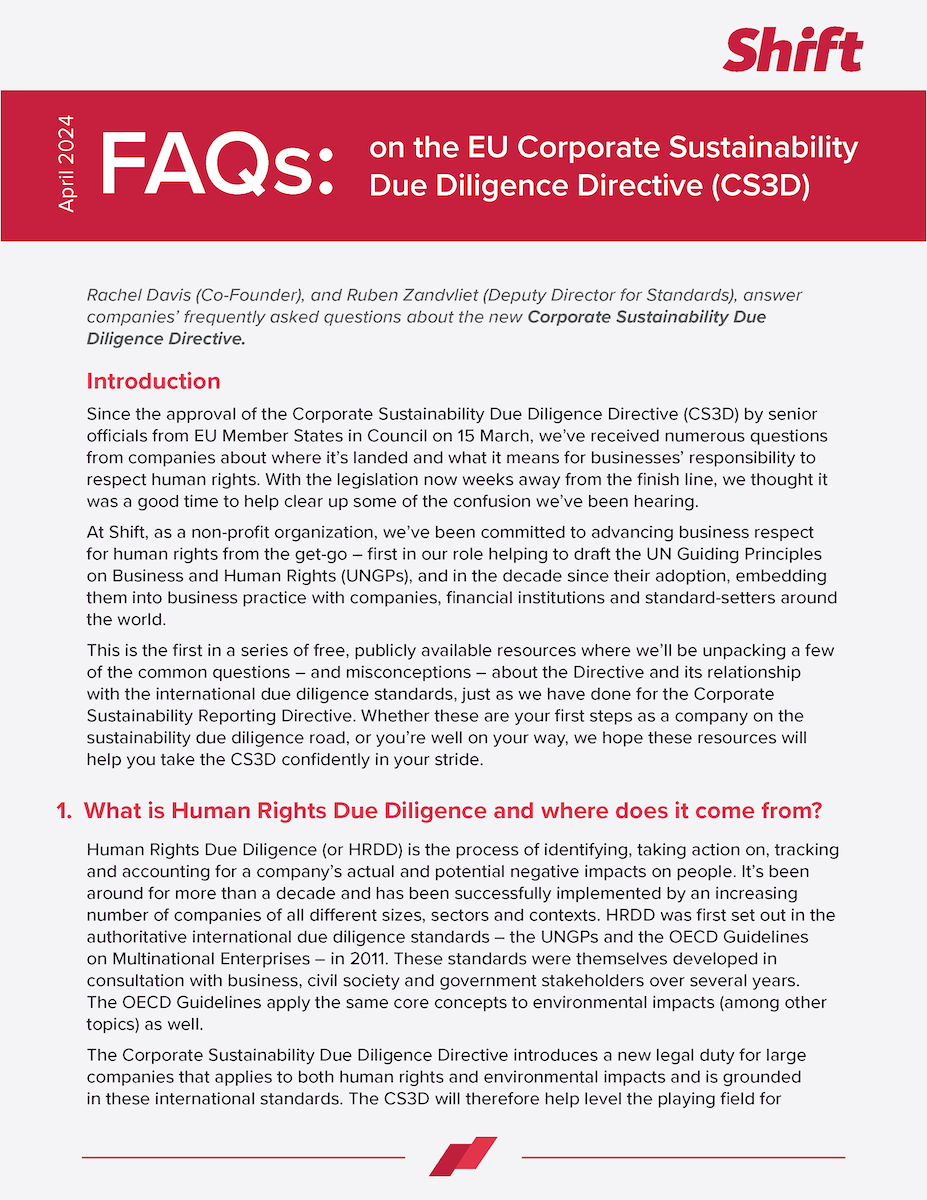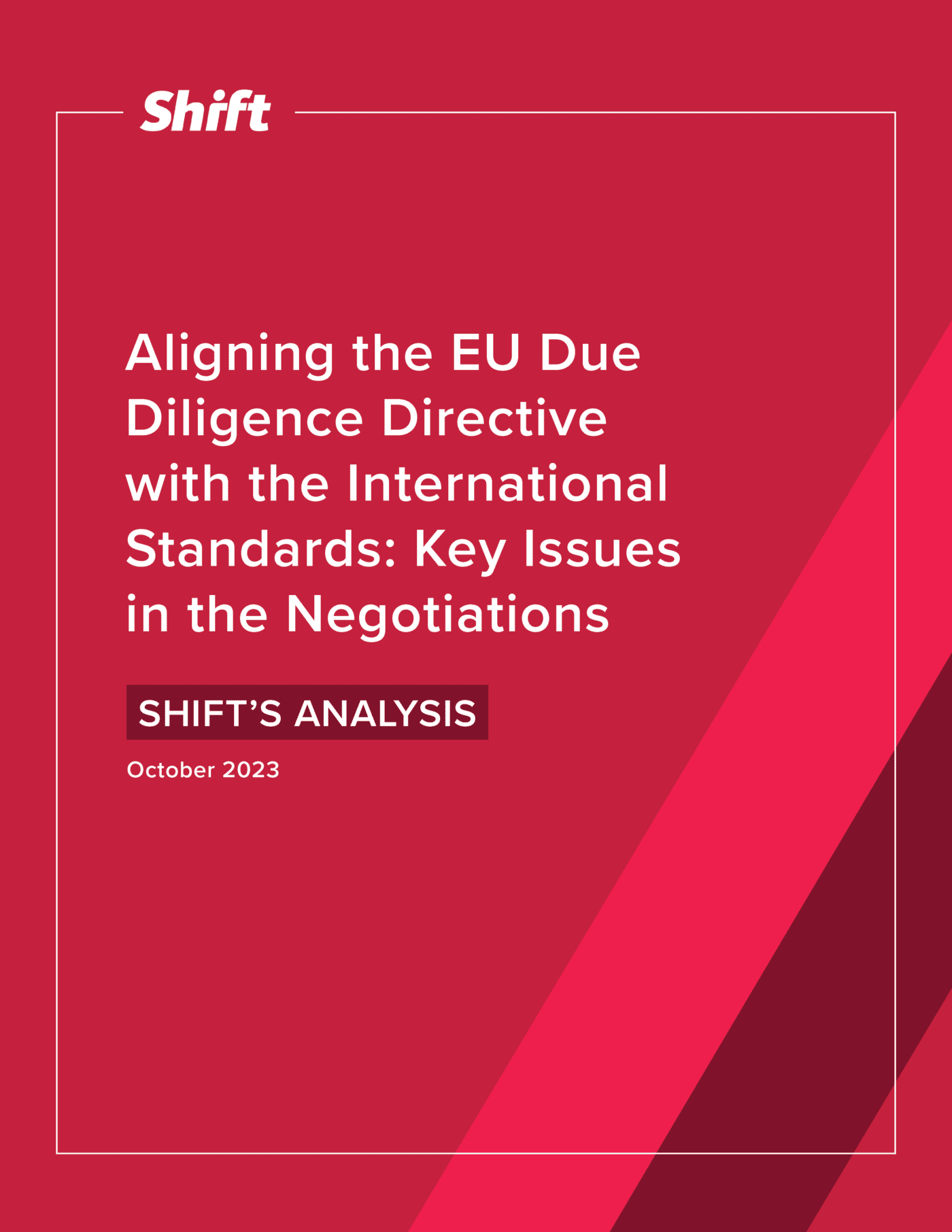Seven agreements have been signed as part of this process: garment and textile | banking | gold | natural stone (pilot) | food products | insurance | pension funds |
Shift is pleased to be providing expert support to the SER, and the Dutch Ministry of Foreign Affairs, as part of a pioneering process that has brought together companies, governments, unions and civil society, across key business sectors, to try to prevent human rights risks and ensure responsible business conduct in critical global value chains.
The process also seeks to address environmental impacts, corruption and taxation practices and other negative impacts covered by the OECD Guidelines for Multinational Enterprises.
“In our work on fostering sustainable supply chain management among Dutch industry, Shift has been extremely helpful in elevating the policy discussion and business practice in the area of business and human rights. The Shift team’s unique combination of strategic policy advice and practical experience with companies and other stakeholders has been invaluable to our work.”
Mariëtte Hamer, President, Social and Economic Council of the Netherlands
This work is being undertaken in close collaboration with the SER – the advisory and consultative body of employers’ representatives, union representatives and independent experts that has been fostering sustainable supply chain management among Dutch industry since 2008. | See our explanatory note on prioritization of human rights risks prepared for the SER
In each sector, parties have identified severe risks that they are facing and developed individual commitments and collaborative approaches to address them. With the support of Shift, the SER has developed guidance -contained in its Advisory Report– to help parties ensure that the measures developed are credible, and aligned with international standards.
The expectation is that parties:
- Use credible methodologies, aligned with leading international frameworks, to identify sector-wide human rights, environmental, corruption and related risks;
- Identify collaborative approaches to building and exercising the leverage of sectors and their stakeholders to address such risks;
- Involve relevant stakeholders in credible, dialogue-based multistakeholder processes.
Shift has played a key role in building the capacity of all parties to play their envisioned roles as leaders, participants and conveners of a credible process aiming to assess and address sector-wide risks. This support has included workshops for a number of sector associations, together with expert stakeholders, held in The Hague and hosted by the SER. | Learn more about how Shift facilitates multistakeholder dialogue on business and human rights
Over the past years, Shift has also supported implementation of a number of specific agreements, most notably the Dutch Banking Sector Agreement. Our support to the parties involved in that agreement has included:
- Facilitating a workshop on human rights reporting, which led to the issuance of the first human rights reports by ING and Volksbank (Dutch) and of a second report by ABN AMRO.
- Providing expert input and leading the drafting of paper capturing learning from the “enabling remedy” working group, which among other themes, included exploring the concept of a “remedy ecosystem.”
- Supporting the “value chain mapping” working group by helping to shape its methodology and facilitating the process for the cocoa value chain mapping and part of the process for the palm oil value chain mapping.
In 2017, the Dutch Government recommitted itself to the process and is scheduled to undertake an evaluation in late 2019. The coalition agreement includes a provision to consider binding measures in case insufficient progress is deemed to be made. Shift looks forward to being a part of the evaluation process and discussions about what more is needed.
To learn more about the Sector Agreements, click here.



